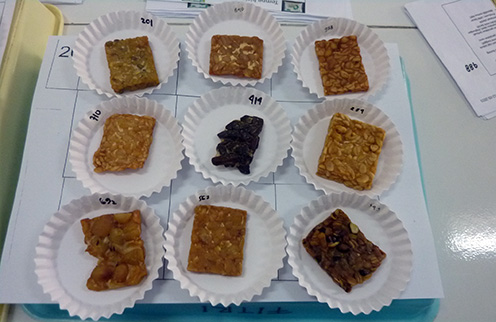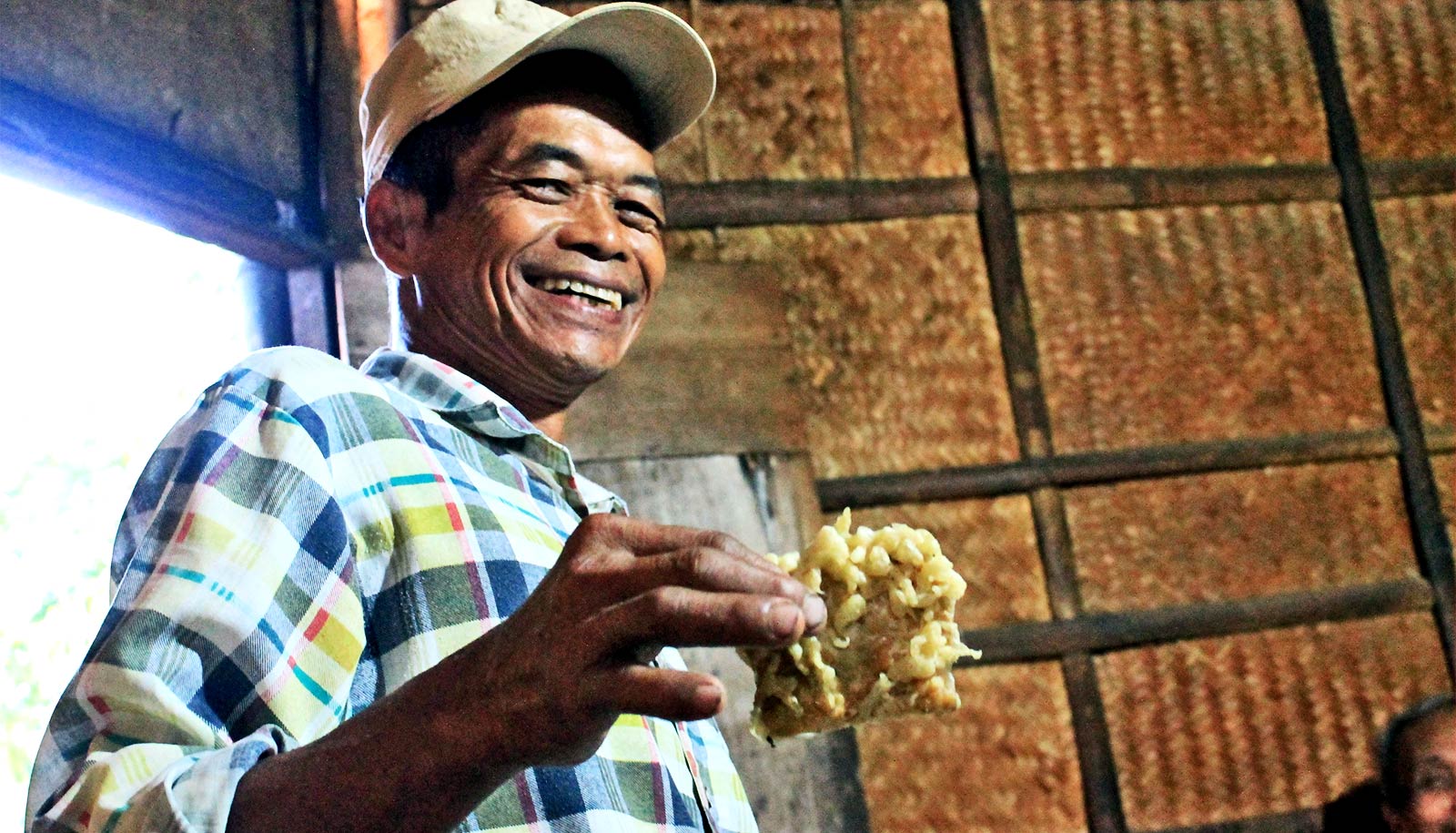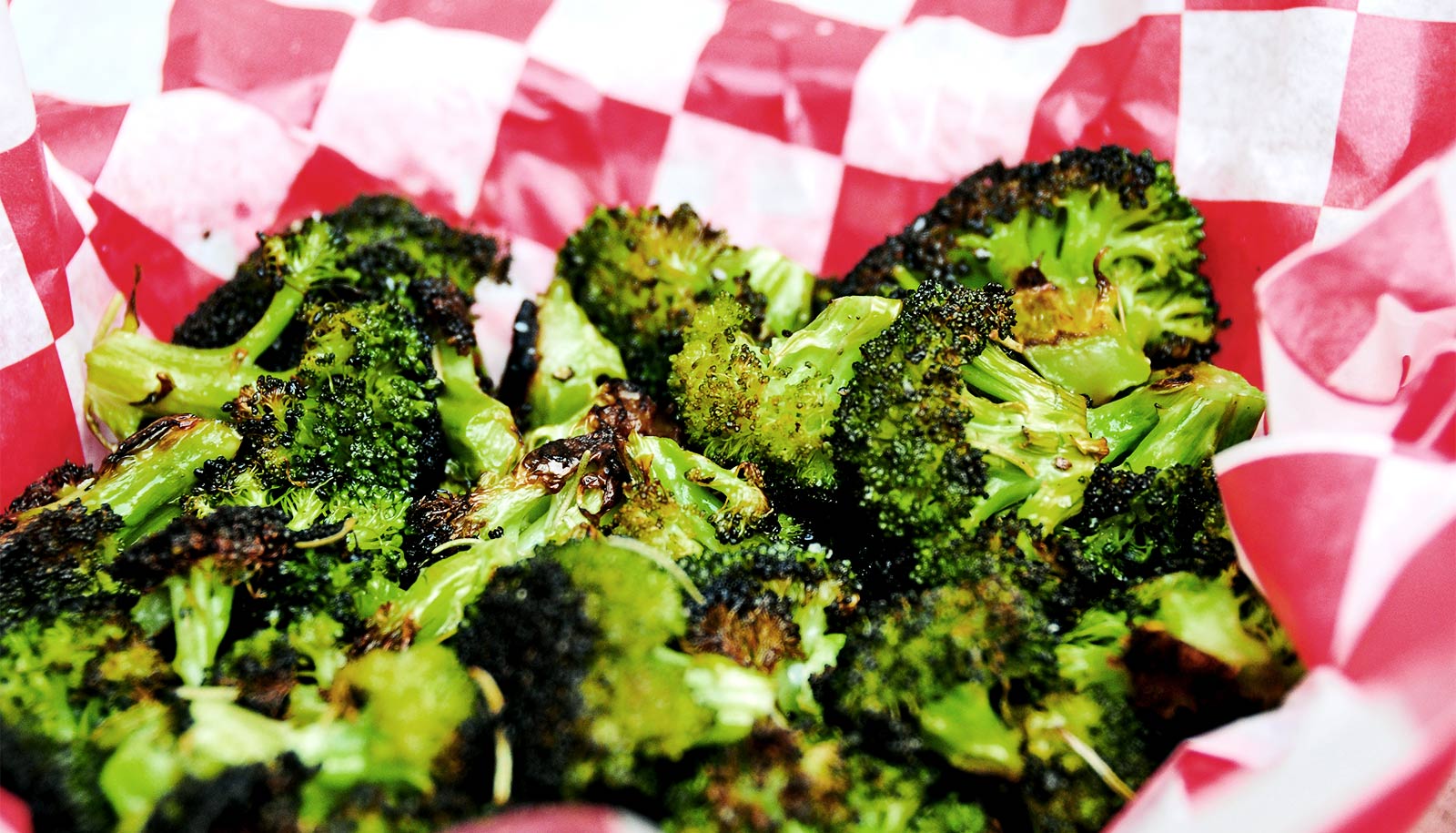Knowing about the origins and creation of an unfamiliar food can make it taste better, research with tempeh finds, even if the taste isn’t great to begin with.
The researchers conducted the study in Indonesia with the participation of young Indonesians who rated modern and traditional versions of tempeh, which has a long tradition in Indonesian cuisine and consists of beans fermented with a type of fungus.
Tempeh is a sustainable food for several reasons. Legumes fix nitrogen from the air and so can grow efficiently without added nitrogenous fertilizers, while simultaneously improving the soil for other crops. Tempeh is high in protein, and its fermentation process forms vitamin B12, which we otherwise tend to get from animal products.

Judging food by taste
The researchers let participants judge the taste of five modern and four traditional versions of tempeh. It turned out that the young people liked the modern versions as long as they were only considering the taste. But when the researchers provided information about the background of the different versions of tempeh, it changed both the taste and how much they liked the traditional versions.
“When the young people were told that the tempeh in front of them was made from local ingredients with traditional production methods, the information made the products taste significantly better,” explains Michael Bom Frøst, associate professor from the food science department at the University of Copenhagen.
Modern, industrially produced versions of tempeh that have a more standardized taste are supplanting the traditional tempeh, which researchers believe is one of the reasons for this result.
“We know from other research that we really like the taste of something we can recognize, and therefore it is not surprising that the young Indonesians like the modern versions of the tempeh best, as it is simply these versions that they know best,” says Bom Frøst.
Deep roots
Earlier research has also shown that the narrative of a food can influence the taste of the dish, but the research here specifically showed that it was the pride in a traditional dish with deep roots in the participants’ own culture and made of local produce that made the food taste better.
“Much more than taste and how much we like what we eat affects our behavior. Here it was clear that other elements of the experience, such as the pride of eating food made from local produce and using traditional production methods, significantly changed the perception of the food. There are a lot of feelings about food that are connected to where it comes from,” explains Bom Frøst.
That’s why it might be interesting for producers in Indonesia to formulate strategies that consider consumers’ strong positive feelings about traditions. It has a major impact on how food production can modernize while keeping consumers connected to their original food culture.
The research appears in the journal Food Quality and Preference.
Support for the research came from the Directorate General of Higher Education in the Ministry of Research, Technology and Higher Education of the Republic of Indonesia in the form of a PhD scholarship to first author Dwi Larasatie Nur Fibri, who has returned to Gadjah Mada University as an assistant professor.
Source: University of Copenhagen



